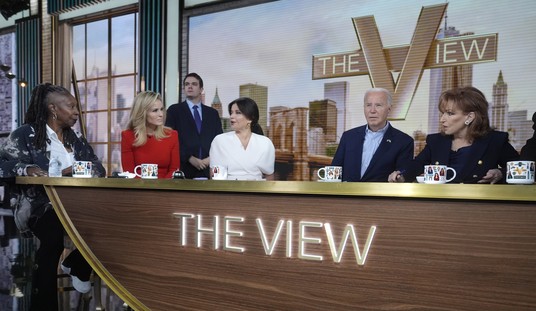One never wants to take anything for granted, but it appeared as of Friday evening that “cap and trade,” one of President Barack Obama’s two key initiatives, is at death’s door, while with statist health care, the president is attempting a resurrection.
It is more than a little sobering to realize that, but for a few gigabytes of purloined emails and one upstart candidate’s upset Senate victory in Massachusetts, both measures might by now have received his final signature. It’s downright frightening to realize that these leftist victories, had they been achieved (and one may yet be), would largely have resulted from big business’ attempts to make peace with people who are capitalism’s sworn enemies.
That business leaders are frequently all too willing to sell out the core principles of the free market system in the name of perceived and often illusory short-term profits is not exactly news. Adam Smith wrote over 200 years ago that “people of the same trade seldom meet together, even for merriment and diversion, but the conversation ends in a conspiracy against the public, or in some contrivance to raise prices.”
Too many businesses, when they reach a certain size and gain confidence that they are no longer just a few missteps away from serious financial problems, often put more energy into cementing their current market positions through anticompetitive means than into growing or expanding their enterprises. If they become big enough, they often turn into institutions inexplicably perceived as “indispensable,” which then enables them to lobby for unfair breaks from governments. Thus, at the local and state level, supposedly indispensable businesses that are sometimes as small as a few hundred employees receive tax abatements and other incentives.
At a much larger level, in the early 1950s, the country heard Charles Erwin Wilson, president of General Motors, essentially tell the nation that “what’s good for General Motors is good for the country.”
GM’s anticompetitive posture in the 1960s and 1970s, the heyday of Detroit’s Big Three, largely revolved around how “cleverly” it reacted to the federal government’s increasing appetite for regulation. The Wall Street Journal’s editorialists frequently pointed out during that era that any time a new and onerous safety or workplace regulation spewed forth from Washington, GM, instead of objecting on free market or cost-benefit grounds, would immediately and almost cheerfully announce that it would comply. Meanwhile, number two Ford would grumble that it would somehow figure out how to deal with it and much smaller Chrysler would howl with outrage. GM’s receptivity might seem odd, but it knew that it could absorb any new fixed costs associated with government rules and regulations far better than its two much smaller competitors.
Decades of lackluster management coupled with excessive attention to non-core goals later, the domestic auto industry’s supposed indispensability turned into “too big to fail” in two of three cases, at a terrible price to what’s left of taxpayers’ pocketbooks.
Larger companies also tend to pay more attention than they should to so-called social responsibility concerns when, as the late, great Nobel economics laureate Milton Friedman said in his timeless essay, “The Social Responsibility of Business Is to Increase Its Profits”:
There is one and only one social responsibility of business — to use its resources and engage in activities designed to increase its profits so long as it stays within the rules of the game, which is to say, engages in open and free competition without deception or fraud.
In January 2007, misguided notions of social responsibility, as well as fear of what the new Democratic majority in Congress might do, led major players in energy and related industries to form the U.S. Climate Action Partnership (USCAP) with the Environmental Defense Fund, the Natural Resources Defense Council, the Pew Center on Global Climate Change, and the World Resources Institute. It is not a coincidence that during this attempt to make peace with radical environmental groups, companies such as General Electric, Duke Energy, and others started hyping the wonders of controlling greenhouse emissions in their media ads and corporate actions. Many of them believed that they had a great deal to gain from a government-contrived emissions-trading market.
An “if you’re not at the table, you’re on the menu” sellout by these craven betrayers of capitalism seemed inevitable as long as human-caused global warming had widespread credibility as legitimate science. Thanks to the Climategate emails, followed three months later by the startling admissions of the University of East Anglia’s Phil Jones, that’s over. Beginning a slow bow to reality, several of USCAP’s key members, including former enviro darling BP, have announced that they will not renew their memberships.
Barack Obama’s and Congress’ designs on government control of health care centered on the same “eat or be eaten” theme, and Big Pharma bit. The industry was okay with government dictating the nature and scope of our health care as long as their short-term profits were enshrined. Fortunately, Scott Brown and Massachusetts voters weren’t. If Brown’s election had come even three weeks later and if Mother Nature hadn’t dumped a few feet of global warming on metro D.C., the Senate and House might have worked out their differences and the long march toward ruination of the best health care system in the world might have begun.
We can’t count on being so lucky in the future. Preventing similar future threats to our very lives and liberty depends heavily on success at significantly shrinking the size and scope of government, and on shareholders forcing corporate leaders to focus on Friedman’s correct definition of their “social responsibility.”









Join the conversation as a VIP Member